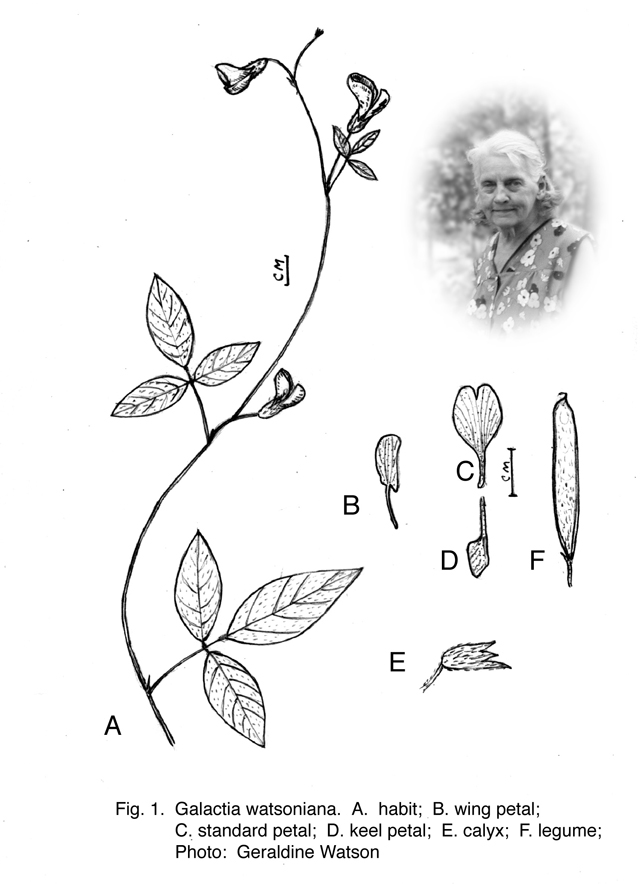Baylor Researcher Discovers New Species of Legume

A Baylor University researcher has discovered a new species of pea existing in the Hill Country, adding to the nearly 300 species of legumes in the state.
Dr. Walter Holmes, professor of biology at Baylor, discovered the new pea, which he named Galactia watsoniana, while searching and inventorying different plants in the Love Creek Nature Preserve in Bandera County. While much of the area has been disturbed by overgrazing cattle, Holmes said the particular area where the new species was found is in higher elevation where cattle could not reach.
The find was documented in the journal Novon.
"We found it along a riverbed in one of the most beautiful places in the preserve," said Holmes, who found the new species with his colleague Jason Singhurst, a Texas Parks and Wildlife botanist. "When I first saw it, I knew we had stumbled onto to something new."
The researchers found the small sprawling vine with large deep-purple and yellow-green flowers in the headwater areas of the upper Medina River and Sabinal River, which are both tributaries of the Nueces River. Holmes said they found fewer than 100 of the new species existing in the area, with most found along shaded, gently sloping terraces above the rivers. Because so few exist, the species has been listed as endangered. The new legume flowers between late April and August.
The researchers gave the new legume the named Galactia watsoniana and the common name of "Watson's Milkpea" in honor of Geraldine Watson, a botanist and conservationist from the Beaumont area who was one of the impelling forces behind the creation of the Big Thicket National Preserve in southeastern Texas.
"Geraldine is renowned Texan and a beloved friend of mine and Jason," Holmes said. "I couldn't think of a better person to name this new legume after."
For more information, contact Dr. Holmes at (254) 710-2108.